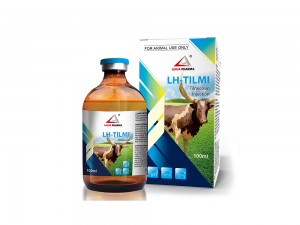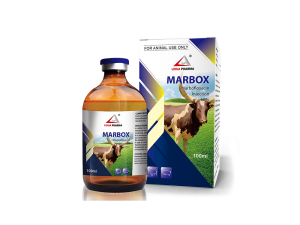Oxytetracycline Hydrochloride Powder 40%
Description
Oxytetracycline belongs to the group of tetracyclines and acts bacteriostatic against many Gram-positive and Gram-negative bacteria like Bordetella, Bacillus, Corynebacterium, Campylobacter, E. coli, Haemophilus, Pasteurella, Salmonella, Staphylococcus and Streptococcus spp. and Mycoplasma, Rickettsia and Chlamydia spp. The mode of action of oxytetracycline is based on inhibition of bacterial protein synthesis. Oxytetracycline is mainly excreted in urine and to a lesser degree in bile and in lactating animals in milk.
Indications
Gastrointestinal and respiratory infections caused by oxytetracycline sensitive bacteria like Bordetella, Bacillus, Corynebacterium, Campylobacter, E. coli, Haemophilus, Pasteurella, Salmonella, Staphylococcus and Streptococcus spp. and Mycoplasma, Rickettsia and Chlamydia spp. in calves, goats, poultry, sheep and swine.
Administration and Dosage
For oral administration:
Calves, goats and sheep: Twice daily 1 g per 20 - 40 kg body weight for 3 - 5 days.
Poultry and swine: 1 kg per 2000 litres of drinking water for 3 - 5 days.
Note: For pre-ruminant calves, lambs and kids only.
contraindications
Hypersensitivity to tetracyclines.
Administration to animals with an impaired renal and/or hepatic function.
Concurrent administration of penicillins, cephalosporins, quinolones and cycloserine.
Administration to animals with an active microbial digestion.
side effects
Discoloration of teeth in young animals.
Hypersensitivity reactions may occur.
Withdrawal Period
- For meat:
Calves, goats, sheep and swine: 8 days.
Poultry: 6 days.
Not for use in animals from which milk or eggs are produced for human consumption.
Storage
Store below 30℃, in a dry place, and protect from light.
For Veterinary Use Only
You may also be interested










